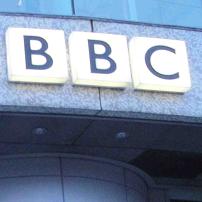 The below admission from the BBC that its substitution of Syria footage between two 2014 broadcasts breaches its own Editorial Guidelines on accuracy is a modest victory in the battle to attract scrutiny to the wider charges that one of the reports in question (at least) was largely, if not entirely, fabricated.
The below admission from the BBC that its substitution of Syria footage between two 2014 broadcasts breaches its own Editorial Guidelines on accuracy is a modest victory in the battle to attract scrutiny to the wider charges that one of the reports in question (at least) was largely, if not entirely, fabricated.
For almost two years I have pursued the question of whether scenes of the aftermath of an alleged incendiary attack on an Aleppo school – filmed by BBC staff and first broadcast as UK legislators voted on military intervention in Syria – were staged for the purposes of propaganda.

Many compelling evidence points have arisen: the widely contradictory
accounts of precisely when the alleged attack occurred – including disagreement between the BBC reporter and cameraman concerned; the
testimony of a former Free Syrian Army commander stationed in the vicinity denying that an attack occurred; a fortuitously-grabbed screencap of one of the alleged teenage victims
grinning broadly into the camera; “victims”
sharing the same “costume”, and, most astonishing of all, the
self-identification of a “victim” seen in footage from the day (in reality a 52 year old Netherlands resident) who contacted me on Facebook, anxious that she may be recognised.
The backgrounds of the two doctors featured in the BBC’s report are of considerable interest:
Dr Saleyha Ahsan, a former British army captain, has a personal connection with a military officer who runs large-scale
medical simulation exercises, employing professional casualty make-up artists; Dr Ahsan’s colleague,
Dr Rola Hallam, is the daughter of Dr Mousa al-Kurdi, who is “involved politically with the Syrian National Council”. The co-founder of Hand in Hand for Syria, the “humanitarian” charity for which the doctors are filmed volunteering, has expressed
bloodthirsty promises to bring Assad to justice “NO MATTER WHAT LIVES IT TAKES, NO MATTER HOW MUCH CATASTROPHE IT MAKES”. A Hand in Hand for Syria
nurse seen working alongside Drs Ahsan and Hallam is pictured elsewhere tending to the wounds of a child opposition fighter.
Very many other discrepancies are noted on my
blog. It is hard to escape the conclusion,
voiced by former UK ambassador Craig Murray, that the BBC’s ‘Saving Syria’s Children’ “documentary” represents the fruit of a collaboration between BBC personnel and UK state security services and marks a unique and historic breach of trust between the corporation, its UK licence fee-payer funders and its millions of viewers and listeners worldwide.
Robert Stuart
* * *
Ref: CT/1500344
Dear Mr Steel
Thank you for your provisional finding of 20 July (reproduced below) informing me that you propose to uphold
my complaint regarding the substitution of Syria footage in respect of accuracy.
The finding does not address the
points I have raised regarding the journalistic ethics of substituting images without acknowledgement or of the disturbingly vague and seemingly arbitrary categories of “taste of decency”. As your colleague Mr Tregear patricianly
put it:
You have been given an explanation as to why the footage was changed; there is no reason why the audience should be made aware that any such editing has taken place; and BBC News is under no obligation to tell you the source of the substituted images which were broadcast.
In response to your comment about the paragraph in my email which you found “astonishing”, I can only say the point I was making was that there is no formal policy which obliges BBC News to inform viewers that footage has been changed or to confirm when asked the source of material used. It is a matter for BBC News to decide whether to provide that information.
I shall wish to pursue these matters following receipt of your final report.
Yours sincerely,
Robert Stuart
_________________________________
British Broadcasting Corporation White City, 201 Wood Lane, London, W12 7TQ
Editorial Complaints Unit
Mr R Stuart
Email:
Ref: CT/1500344
20 July 2015
Dear Mr Stuart
Syria Vote: One Year On, BBC News Channel, 30 August 2014
I’m writing to let you know the provisional outcome of the Editorial Complaints Unit’s investigation into your complaint about a report broadcast on the BBC News Channel at 4.30am BST on 30 August 2015 [sic]. I’m sorry this has taken longer than we initially led you to expect.We’re now in a position to add to the account you were given in the email of 17 May from the BBC Complaints Team. As explained in that email, the report was re-edited in order to replace the footage of the Aleppo attack of August 2013 with less graphic images (of an attack in Saraqeb, Northern Syria, on 29 April 2013) for a different audience. We’ve now established that the editing was carried out by the Newsnight team after the programme came off the air – at about midnight, in fact, and after Laura Kuenssberg had left the studio. I’m told that they didn’t check the sound-track, and the fact that the replacement of the pictures rendered the accompanying script line inaccurate simply didn’t register with them –and of course the News Channel team would have no reason to suppose there was anything amiss with the report as it reached them. I agree with the view that the change of pictures didn’t change the journalistic integrity of the piece, in the sense that it wouldn’t have affected viewers’ understanding of the matters under discussion. Nevertheless, it would have given them the impression that they were seeing footage of an attack which took place just before MPs voted when the footage actually dated from four months earlier – an impression which could have been avoided if the script had been appropriately edited or if less graphic images from the Aleppo attack had been used. I’m therefore proposing to uphold your complaint in respect of accuracy, though I hope the explanation I’ve given will reassure you that there was no intention to mislead.
As my colleague, Colin Tregear, explained in his letter of 18 June, this is a provisional finding and so I’ll be happy to consider any comments you may wish to make provided that you let me have them by 3 August. Alternatively, if you are content with the finding as it stands, let me know and I’ll finalise it without further ado.
Mr Tregear also said he would ask the relevant BBC manager to respond to your concerns about the time it took tom [sic] address your complaint at Stage 1 of the process. This is their response:
We have reviewed the delays in replying after Mr Stuart’s return complaint was received in November and do apologise again for these on behalf of the BBC Executive. There was already a backlog of complaints being investigated in BBC News which caused some initial delay when Mr Stuart escalated his complaint in November 2014. This was a consequence of large volumes of complaints following the conflict in the Middle East during the summer and then the Scottish Referendum in September. Although the relevant editor was asked on a number of occasions for a response over many weeks, he had not provided one by March when he moved on to a new role. A response from his successor was consequently delayed and provided over a month later. We apologise for these delays, which do not reflect the level of service we strive for and are normally able to provide.
Yours sincerely
Fraser Steel
Head of Editorial Complaints
River to Sea Uprooted Palestinian
Uprooted Palestinian 
 The below admission from the BBC that its substitution of Syria footage between two 2014 broadcasts breaches its own Editorial Guidelines on accuracy is a modest victory in the battle to attract scrutiny to the wider charges that one of the reports in question (at least) was largely, if not entirely, fabricated.
The below admission from the BBC that its substitution of Syria footage between two 2014 broadcasts breaches its own Editorial Guidelines on accuracy is a modest victory in the battle to attract scrutiny to the wider charges that one of the reports in question (at least) was largely, if not entirely, fabricated.  Many compelling evidence points have arisen: the widely contradictory accounts of precisely when the alleged attack occurred – including disagreement between the BBC reporter and cameraman concerned; the testimony of a former Free Syrian Army commander stationed in the vicinity denying that an attack occurred; a fortuitously-grabbed screencap of one of the alleged teenage victims grinning broadly into the camera; “victims” sharing the same “costume”, and, most astonishing of all, the self-identification of a “victim” seen in footage from the day (in reality a 52 year old Netherlands resident) who contacted me on Facebook, anxious that she may be recognised.
Many compelling evidence points have arisen: the widely contradictory accounts of precisely when the alleged attack occurred – including disagreement between the BBC reporter and cameraman concerned; the testimony of a former Free Syrian Army commander stationed in the vicinity denying that an attack occurred; a fortuitously-grabbed screencap of one of the alleged teenage victims grinning broadly into the camera; “victims” sharing the same “costume”, and, most astonishing of all, the self-identification of a “victim” seen in footage from the day (in reality a 52 year old Netherlands resident) who contacted me on Facebook, anxious that she may be recognised.











No comments:
Post a Comment